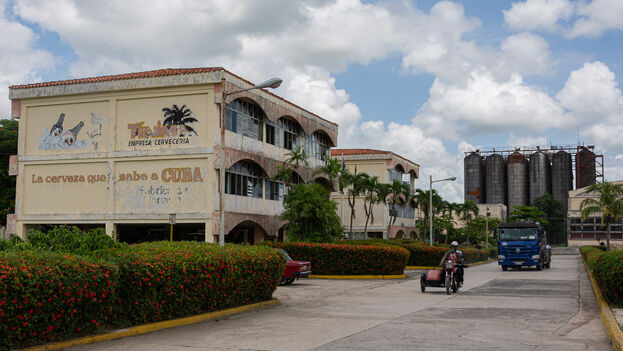
![]() 14ymedio, Madrid, 10 February 2023 — Cuba’s Minister of Economy and Planning, Alejandro Gil Fernández, announced this Thursday the imminent start-up of seven foreign investment businesses with an impact on the food sector, some of them starting in March. In a meeting with directors of the Ministry of the Food Industry, he insisted on the need to turn to this type of association to alleviate the shortage of foreign currency that prevents the payment of debts.
14ymedio, Madrid, 10 February 2023 — Cuba’s Minister of Economy and Planning, Alejandro Gil Fernández, announced this Thursday the imminent start-up of seven foreign investment businesses with an impact on the food sector, some of them starting in March. In a meeting with directors of the Ministry of the Food Industry, he insisted on the need to turn to this type of association to alleviate the shortage of foreign currency that prevents the payment of debts.
The new companies mentioned by Gil, who is also deputy prime minister, are for the provision of refrigeration services, the production and marketing of sea cucumbers and the cultivation, processing and marketing of marine sponges, fish and gin.
There is also a mixed company that will produce and market cocoa derivatives and another that will do the same with water, soft drinks, beers and malts in the Tínima factory in Camagüey, which has been brewing beers since 1985. Last July it suffered an ammonia leak due to the breakage of a valve in which there had been no major problems.
The officials pointed out that shrimp, eels – a luxury food intended solely for export to the Asian market – and coffee are other products that should be promoted to foreign investors due to their high demand and important dividends. In the case of the last product there is a lot that will have to be worked on, as the scarcity of coffee is becoming a serious problem for Cuba, forced to import it from all kinds of countries.
Gil Fernández pointed out that the 2022 food export plan was only 92% fulfilled and this is expected to be much worse due to the “US blockade, high prices, conflicts and natural catastrophes,” he said, without the slightest hint of self-criticism.
However, it clashes with the recognition that this year will be – in his words – “very tense” with the planned figure, which is valued at $232,787,600, an increase compared to 2022. The sectors whose sales are expected to be most lucrative are rum and fish products.
The deputy prime minister, who asked for an assessment of each foreign investment proposal and its contractual conditions very carefully, said that a foreign currency financing plan has been approved for strategic sectors such as tourism, health and telecommunications, and that it would be very useful “to link” with these.
The dependence that the Cuban authorities have on imports to feed the population is both a cause and a consequence of the serious crisis that the Island is suffering, forcing it to buy 80% of the food it consumes abroad.
According to a recent report by the Economic Commission for Latin America and the Caribbean (Cepal) together with the Food and Agriculture Organization of the United Nations (FAO) and the World Food Program (WFP), Cuba is the second country more deficient and dependent per capita on agricultural imports, only surpassed on the continent by Panama.
Fish is the only product that adds up to a negative balance of 1.635 billion dollars, but the rest of the products present scandalous figures.
The cereal deficit was 668 million dollars, while in corn and wheat it was 181 million. The little that goes into fruits and vegetables also marks a negative balance of 109 million dollars in imports and there is another 104 million in vegetable oils. In dairy, the imbalance was 204 million and meat presents a 446 million dollar imbalance.
____________
COLLABORATE WITH OUR WORK: The 14ymedio team is committed to practicing serious journalism that reflects Cuba’s reality in all its depth. Thank you for joining us on this long journey. We invite you to continue supporting us by becoming a member of 14ymedio now. Together we can continue transforming journalism in Cuba.
